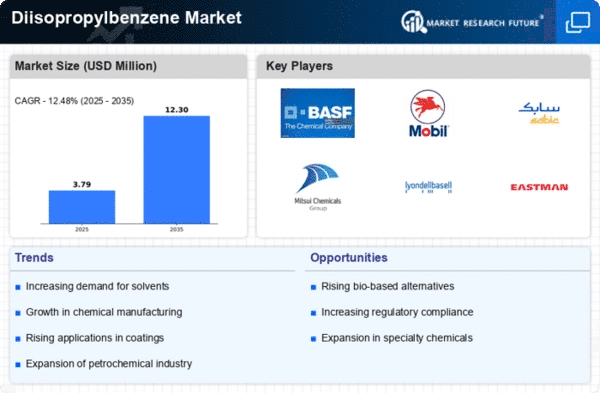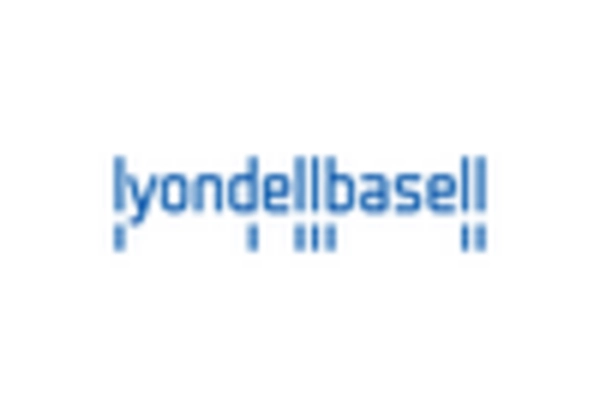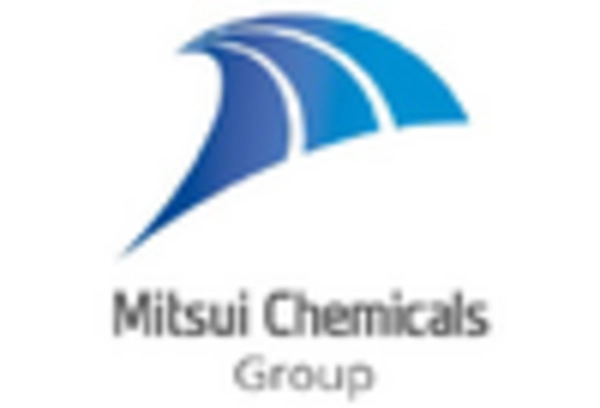Market Analysis
In-depth Analysis of Diisopropylbenzene Market Industry Landscape
The Diisopropylbenzene market is a crucial segment in the chemical industry, and it undergoes various changes resulting from market forces. It is used as a chemical compound which is known as DIPB in short form. This has seen it being applied across varied sectors including manufacturing of fragrances, polymers and specialty chemicals among many others. Technological advancement plays an influential role on this market since improvements on production processes together with broader application of Diisopropylbenzene are due to continued research and development activities by scientists. As industries change, demand for high quality yet cost effective chemical inputs like DIPB continues to rise thus necessitating manufacturers to have updated technologies for them to remain competitive.
Additionally, global supply-demand dynamics affect this variable greatly. Therefore, fluctuations within the diisopropylbenzene industry depend on the general performance levels of core client businesses’ economies such as; automotive, pharmaceuticals plus cosmetics all of which extensively rely on DIPB. For instance during economic downturns these industries may reduce their production leading to decrease demand for Diisopropylbenzene while economic upswings will feature growth hence more demand for it.
In addition, environmental factors are also an important part of market dynamics for Diisopropylbenzene. The industry is driven by the growing trend towards cleaner production methods and increased awareness of sustainability issues. Enterprises operating in the market of Diisopropylbenzene have to follow eco-friendly practices including pollution reduction and elimination. By adhering to the rules set by the regulators, manufacturers can improve their brand reputation on account of environmentally conscious consumerism being an important aspect.
Market competition is a key factor that determines the dynamics of Diisopropylbenzene. Producing various products using this chemical compound means that many producers are competing for customers’ loyalty creating very tough business environment. Fostering cost effectiveness, differentiation strategies and quality control assumes significant importance for any business in order to emerge as a strong player in this market. In order to gain a competitive edge over rivals, businesses must always make new inventions which involve better versions of Diisopropylbenzene.
Similarly, trade policies and geopolitical factors also affect how Diisopropylbenzene behaves within its market dynamics. Such changes like tariffs; import/export regulations and geopolitical tensions may lead to severe impact on availability and pricing resulting from global supply chain disruption.Diisopropylbenzene manufacturing firms need to be aware of shifts in trade policies along with modifications in geopolitical conditions so as they could adjust their strategic approach accordingly reducing potential risks


















Leave a Comment